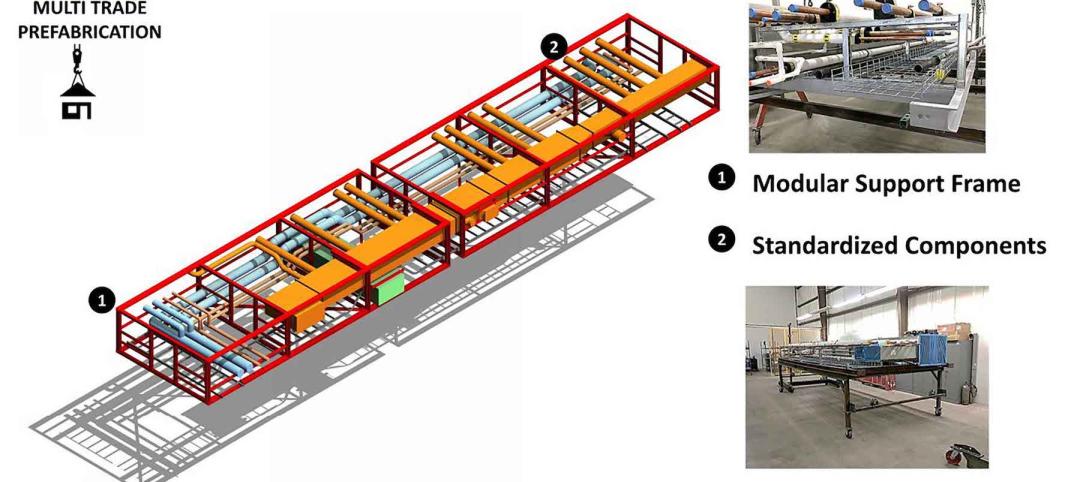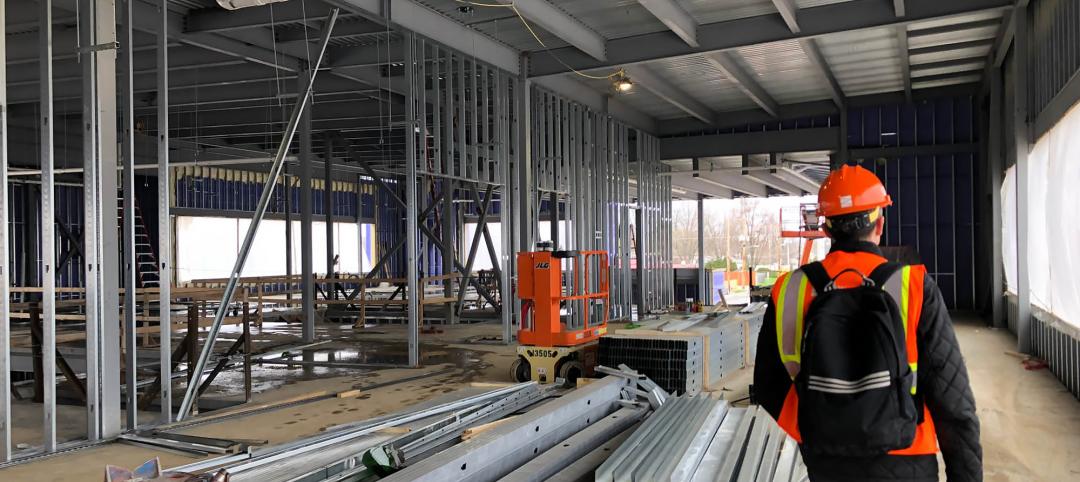One of my negotiation training clients asked me for help in getting ready for a job interview and how to position herself to negotiate the best compensation offer. We talked for a bit about the company she was interviewing with. I quickly learned that she knew exactly what she wanted and had prepared her speech in preparation to get the offer that she wanted. The glaring omission from her preparation was an understanding of what the company was looking for and why they were talking to her, in particular.
She spent the better part of our time together explaining to me why she was particularly qualified for the position and how her unique set of experiences and prior jobs positioned her for the exact job the comany was looking to fill. Without realizing it, my client prepared herself for the negotiation by explaining to me the company, the position, and how her skills and experience fit the needs of the company and the open position.
She later remarked, "Wow, I feel so ready to go into this meeting! You really helped me a lot! I would not have been prepared without this talk with you."
Through some focused effort and key questioning, we were able to hone in together on the key issues of her concerns about the position, what she needed as far as a compensation package, and, almost more importantly, what she believed the company was looking for in the open position. She certainly may have accomplished her preparation without my assistance, but together we were able to examine some items she missed on her own.
Women often commit three "deadly sins" of negotiation preparation. First, we feel like we can do it on our own and do not want to bother someone else who is not involved in the negotiation. Women tend to not want to burden others with their individual needs. Particularly in a salary negotiation; women do not want to ask for help. But, one of the best ways to prepare is to have a sounding board—a friend, colleague, client, or spouse who is willing to listen and ask careful, but probing questions is often the best way to investigate the omissions in your preparation. Having another perspective is always useful.
Second, like my client, women often succumb to fear in how to take next step and simply stop preparing. My client felt frozen in her next step and her fear got the better part of her ability to prepare adequately. She knew she should prepare but did not know how to get started. She was ready to either give up and not pursue the job or just go in and wing it. Neither was the right choice. She had all of the facts and information at her fingertips, she knew her strengths and her own track record, and knew a lot about the company. But she did not know how to put the different items together. Once we started on the road to connecting the different items to allow her to express how her skills and background met with the needs of her negotiating partner, she got excited and was ready to roll.
Third, women often fail to take stock of the other side's perspective. It can be challenging to put yourself in someone else's shoes. But, women in particular, are often adeptly skilled at doing this and just are not aware that this step is one of the most important and effective preparation steps for an effective negotiation. Thinking of your counter-part as your negotiation "partner" instead of your opponent can help with this. If you are negotiating a contract with a new client, you need to know what the client needs, what the client's expectations are, and what experiences the client has had in the past. Women generally are skilled at the relational skills that can elicit this information even from a brief meeting. The same items would be needed for a salary negotiation—knowing the needs, expectations, and prior experiences are critical to being fully prepared.
One additional step in preparing for a negotiation is to prepare the other side. What, you say? I need to get my opponent (oh, I mean "partner") prepared?! Isn't that going to work against me? Shouldn't they do their own work? Not necessarily. When you know the ultimate end goal for your negotiation and you can anticipate the end goal for your negotiation partner, you can find areas where you can concede items that are of high importance to your partner but low importance for you, giving them something without costing you a lot.
Additionally, there may be key negotiations terms that you otherwise would not be aware of if you did not take time to prepare your partner. You can accomplish more in your negotiation if everyone is prepared. Going back to my client in her job interview and salary negotiation - this was evident during her meeting with the prospective employer. She had a team meeting with the executives of the company. But prior to the meeting, she not only found out who was going to be in the meeting and their role in the company, but also provided her contact with a list of items that she wanted to discuss.
Instead of fearing that she would give them time to develop counterpoints to her questions and "ask" items, instead, she understood that the hiring decision was a team process and gave the team information in advance so that whey they met, they honed in on the two items of concern and they negotiated those deal points. The end result, the executive team was thoroughly impressed with my client's foresight and thought in her preparation and the negotiation was streamlined, leading to a successful result for both parties.
You can implement these four steps as well in all of your negotiations.
1. Get a sounding board and work though the issues; practice what you will say!
2. Don't be afraid! Use the facts you have - or gather those you do not - and push through. Look for connections between the facts and the needs of your negotiation partner.
3. Take stock of the other side's perspective and needs. Think of them as your "partner" in getting the deal accomplished. Then you can prepare for it and how to respond.
4. Prepare your negotiation partner. Don't let lack of preparation on their end stymie your efforts at a successful deal.
In our next segment, we will look at questions about how to start a negotiation— whether, and when, to be the first one out of the gate or to demand a opening demand/offer from your partner.
Keep negotiating! Remember preparation is key. Keep me posted on how you are doing in your preparation and post any questions you have on some of the how-to implement these four steps.
Related Stories
Contractors | Jun 4, 2024
Contractors expect to spend more time on prefabrication, according to FMI study
Get ready for a surge in prefabrication activity by contractors. FMI, the consulting and investment banking firm, recently polled contractors about how much time they were spending, in craft labor hours, on prefabrication for construction projects. More than 250 contractors participated in the survey, and the average response to that question was 18%. More revealing, however, was the participants’ anticipation that craft hours dedicated to prefab would essentially double, to 34%, within the next five years.
Airports | Jun 3, 2024
SOM unveils ‘branching’ structural design for new Satellite Concourse 1 at O’Hare Airport
The Chicago Department of Aviation has revealed the design for Satellite Concourse 1 at O’Hare International Airport, one of the nation’s business airports. Designed by Skidmore, Owings & Merrill (SOM), with Ross Barney Architects, Juan Gabriel Moreno Architects (JGMA), and Arup, the concourse will be the first new building in the Terminal Area Program, the largest concourse area expansion and revitalization in the airport’s almost seven-decade history.
Construction Costs | Jun 3, 2024
Escalation: Predicting project costs in a volatile market
Thad Berkes, Chief Cost Estimator, Design Collaborative, shares that one of the major hurdles that Design Collaborative attempts to forecast for its commercial construction projects is escalation.
Multifamily Housing | Jun 3, 2024
Grassroots groups becoming a force in housing advocacy
A growing movement of grassroots organizing to support new housing construction is having an impact in city halls across the country. Fed up with high housing costs and the commonly hostile reception to new housing proposals, advocacy groups have sprung up in many communities to attend public meetings to speak in support of developments.
MFPRO+ News | Jun 3, 2024
New York’s office to residential conversion program draws interest from 64 owners
New York City’s Office Conversion Accelerator Program has been contacted by the owners of 64 commercial buildings interested in converting their properties to residential use.
MFPRO+ News | Jun 3, 2024
Seattle mayor wants to scale back energy code to spur more housing construction
Seattle’s mayor recently proposed that the city scale back a scheduled revamping of its building energy code to help boost housing production. The proposal would halt an update to the city’s multifamily and commercial building energy code that is scheduled to take effect later this year.
Mass Timber | May 31, 2024
Mass timber a big part of Western Washington University’s net-zero ambitions
Western Washington University, in Bellingham, Wash., 90 miles from Seattle, is in the process of expanding its ABET-accredited programs for electrical engineering, computer engineering and science, and energy science. As part of that process, the university is building Kaiser Borsari Hall, the 54,000-sf new home for those academic disciplines that will include teaching labs, research labs, classrooms, collaborative spaces, and administrative offices.
Construction Costs | May 31, 2024
Despite challenges, 2024 construction material prices continue to stabilize
Gordian’s Q2 2024 Quarterly Construction Cost Insights Report indicates that supply chain issues notwithstanding, many commodities are exhibiting price normalization.
University Buildings | May 30, 2024
Washington University School of Medicine opens one of the world’s largest neuroscience research buildings
In St. Louis’ Cortex Innovation District, Washington University School of Medicine recently opened its new Jeffrey T. Fort Neuroscience Research Building. Designed by CannonDesign and Perkins&Will, the 11-story, 609,000-sf facility is one of the largest neuroscience buildings in the world.
Affordable Housing | May 30, 2024
General contractor’s keys to a successful affordable housing project
General contractors can have tremendous influence over a project’s success in terms of schedule, budget, and quality. However, to ensure a project is put on this path, there are a few factors that must be considered.

















